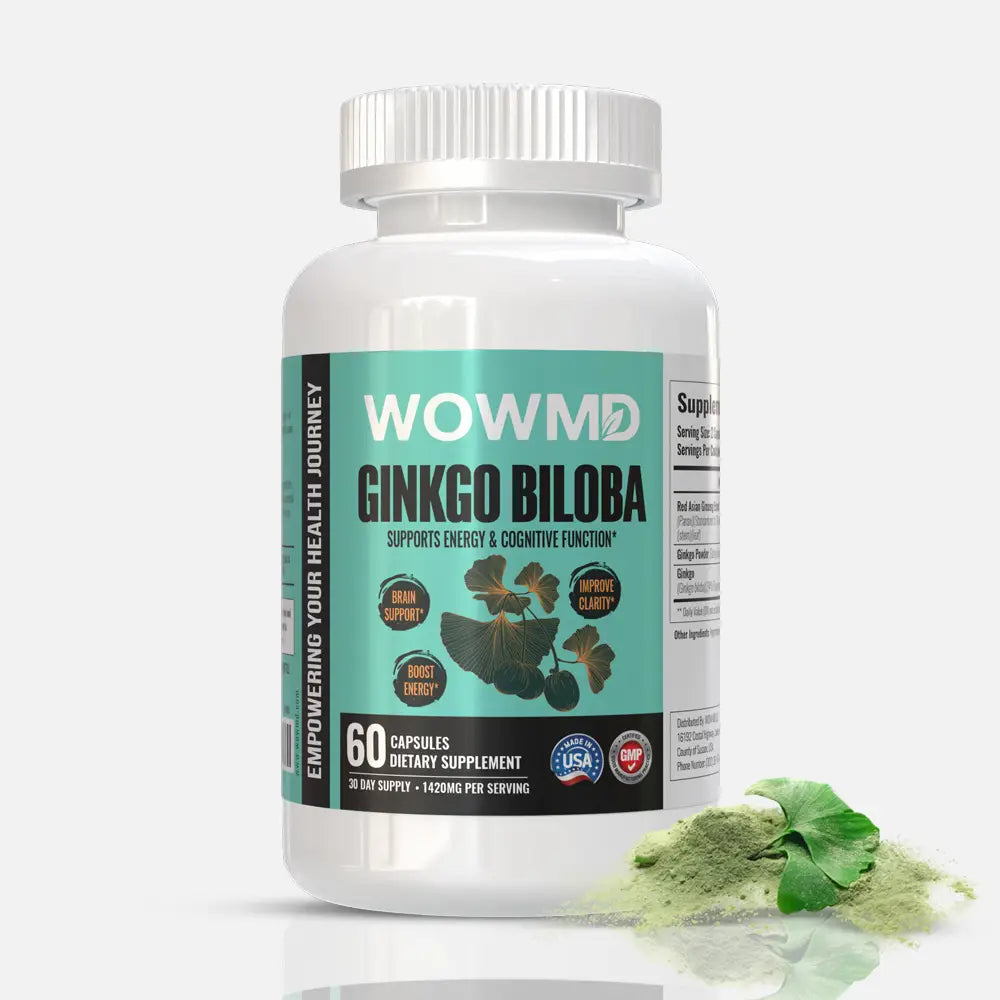Vitamin B-12
Vitamin B-12: A Powerhouse of Nerve Health
A nutrient backed by research that supports metabolism & blood flow
Vitamin B-12, is a vital nutrient that plays a number of important roles in your body, including maintaining healthy nerve cells, red blood cell formation, and DNA production. Since the body can't make B-12 on its own, a few of the key sources include animal products like meat, fish, dairy, and eggs. It can also be found in fortified foods like breakfast cereals and nutritional yeast.
Explore more below.
FIND YOUR DAILY ROUTINE
Learning About Vitamin B-12:
What Is Vitamin B-12?
Vitamin B-12, essential for nerve function, red blood cells, and DNA, must come from food or supplements.
Here's a deeper dive into how vitamin B-12 benefits the body:
- Nervous System and Brain Function: B-12 helps maintain the health of the myelin sheath, a protective layer that surrounds nerve fibers. It's essential for proper nerve signal transmission and can influence mood, memory, and concentration.
- Red Blood Cell Production: Vitamin B-12 is needed for the production of red blood cells, which carry oxygen throughout your body. A deficiency can lead to anemia, a condition characterized by fatigue, weakness, and shortness of breath.
- DNA Synthesis: B-12 is involved in the production of DNA, the genetic material in your cells. It ensures cell growth, division, and repair.
Animal products such as meat, fish, dairy, and eggs are natural sources of B-12, and fortified foods like breakfast cereals and nutritional yeast can also be good dietary sources.
Who Should Consume B-12?
Vitamin B-12 is an essential nutrient for many bodily functions, but some people are more at risk for deficiency and may benefit from consuming it through supplements or fortified foods. Here's a breakdown of who should consider getting more B-12:
- Vegetarians and Vegans: Since natural food sources of B-12 are limited primarily to animal products, those following vegetarian or vegan diets are at higher risk for deficiency. Opting for fortified foods or supplements can help ensure they meet their B-12 needs.
- People Over 50: As we age, our stomach acid production naturally decreases. This acid is necessary for absorbing B-12 from food. For adults over 50, incorporating fortified foods or supplements into their diet is a good way to maintain healthy B-12 levels.
- Individuals with Digestive Issues: Certain digestive disorders like Crohn's disease or celiac disease can hinder the absorption of B-12. If you have a diagnosed digestive condition, speak to your doctor about the possibility of B-12 deficiency and potential supplementation.
- People Who Have Had Weight Loss Surgery: Gastric bypass surgery can affect B-12 absorption. If you've undergone this type of surgery, your doctor will likely recommend B-12 supplements.
- Pregnant and Breastfeeding Women: B-12 is crucial for fetal development and infant health. Women who are pregnant or breastfeeding, especially those following vegetarian or vegan diets, may need to increase their B-12 intake through supplements.
It's important to consult with a doctor to determine if B-12 supplements are right for you. They can assess your individual needs and risk factors for deficiency.
Why Consume Vitamin B-12?
We consume vitamin B-12 because it's a vital nutrient for several key bodily functions. Here's a breakdown of why B-12 is essential:
- Strong Nervous System and Brain Function: B-12 plays a crucial role in maintaining the health of nerve cells and their protective sheaths. This ensures proper signal transmission throughout the nervous system, impacting everything from mood and memory to concentration and balance. Deficiency can lead to nerve damage, tingling, numbness, and even cognitive decline.
- Healthy Red Blood Cell Production: Vitamin B-12 is essential for the production of red blood cells, which carry oxygen throughout your body. A deficiency can lead to megaloblastic anemia, a condition characterized by fatigue, weakness, shortness of breath, and pale skin.
- DNA Synthesis and Cell Repair: B-12 is involved in the production and regulation of DNA, the genetic blueprint for our cells. It ensures proper cell growth, division, and repair, keeping our bodies functioning at their best.
- Energy Production: Vitamin B-12 works with other B vitamins to convert food into usable energy. Deficiency can lead to fatigue, weakness, and difficulty concentrating due to a lack of energy on a cellular level.
These are just some of the reasons why consuming enough vitamin B-12 is important. If you're concerned about meeting your B-12 needs, talk to your doctor. They can assess your individual risk factors for deficiency and recommend dietary changes or supplements if necessary.


 Skin Detoxification Bundle
Skin Detoxification Bundle Complete Weight Loss Bundle
Complete Weight Loss Bundle Heart Care Bundle
Heart Care Bundle Better Immunity Bundle
Better Immunity Bundle  Men's Immunity & Prostate Health Bundle
Men's Immunity & Prostate Health Bundle Stress + Energy + Wellness Combo
Stress + Energy + Wellness Combo  Energy Booster Combo
Energy Booster Combo Natural Skin Care Bundle
Natural Skin Care Bundle Workout Supplements Combo
Workout Supplements Combo Cognitive Health & Vision Combo
Cognitive Health & Vision Combo Joint Health Support Combo
Joint Health Support Combo













































